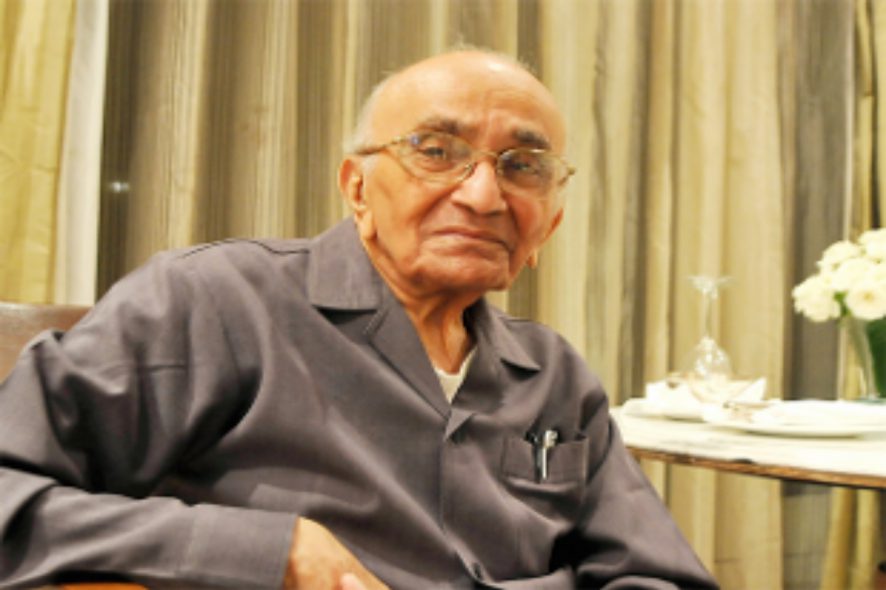Former Chief Justice of India, Justice P.N. Bhagwati passed away on 15.06.2017. He was 95. Appointed to the Supreme Court in July, 1973 he served as Chief Justice from July, 1985 to December, 1986. Considered to be the pioneer of judicial activism, he, by way of his judgment in Bandhua Mukti Morcha v. Union of India, (1984) 3 SCC 161, started the path-breaking practice of treating letters or postcards addressed to judges as writ petitions. However, he had already introduced the idea in Icchu Devi Choraria v. Union of India, (1980) 4 SCC 531 where he said that “even a postcard written by a detenu from jail has been sufficient to activise this Court into examining the legality of detention.” Defining the concept of locus standi in Public Interest Litigations, he, in in People’s Union for Democratic Rights v. Union of India, (1982) 3 SCC 235 said that any individual or body can move the court on behalf of the poor, illiterate and ignorant class for the protection of their fundamental rights and even a letter by a public-spirited person can be treated as a writ petition.
The other seminal cases in which he delivered judgments were, S.P. Gupta v. Union of India, 1981 Supp SCC 87 where, in the opening para, he quotes Sri Aurobindo’s poem Savitri “An inconclusive play is Reason’s toil; Each strong idea can use her as its tool; Accepting every brief she pleads her case, Open to every thought she cannot know.”. He was against the idea of the much debated death penalty and in Bachan Singh v. State of Punjab, (1982) 3 SCC 24 he said that Section 302 IPC was unconstitutional as it provides for the imposition of death penalty as an alternative to Life Imprisonment. He was the only dissenting judge in Minerva Mills Ltd. v. Union of India, (1980) 3 SCC 625 where the 42nd Constitution amendment was held to be unconstitutional.
One of the rare glitches in his career was ADM, Jabalpur v. Shivakant Shukla, (1976) 2 SCC 521, popularly known as the Habeas Corpus case, where he, along with the 3 other members of the 5-judge bench, upheld the unfettered right of the Indira Gandhi Government exercised during emergency that suspended all fundamental rights of the citizens. Much later in his life, he expressed his regret for that verdict.
Words cannot do justice to the huge legacy that Justice Bhagwati has left behind him. Below is the list of some of his notable judgments:
- Maneka Gandhi v. Union of India, (1978) 1 SCC 248,
- Sheela Barse v. Secretary, Children’s Aid Society, (1987) 3 SCC 50,
- Maganlal Chhaganlal (P) Ltd., (1974) 2 SCC 402,
- P. Royappa v. State of TN, (1974) 4 SCC 3,
- Naraindas Indurkhya v. State of MP, (1974) 4 SCC 788,
- State of Karnataka v. Union of India, (1977) 4 SCC 608,
- State of Maharashtra v. Man Singh Suraj Singh Padvi, (1978) 1 SCC 615,
- Madan Mohan Pathak v. Union of India, (1978) 2 SCC 50,
- Trustees for the Improvement of Calcutta v. Chandra Sekhar Mallick, (1977) 3 SCC 448,
- State of Rajasthan v. Union of India, (1977) 3 SCC 592,
- Union of India v. Sankalchand Himatlal Sheth, (1977) 4 SCC 193,
- State of Himachal Pradesh v. Parent of a student, (1985) 3 SCC 169,
- Kanu Sanyal v. Disst. Magistrate, (1973) 2 SCC 674,
- Principal, Guntur Medical College v. Y. Mohan Rao, (1976) 3 SCC 411,
- Hargovind Pant v. Raghukul Tilak, (1979) 3 SCC 458,
- Ajay Hasia v. Khalid Mujib Sehravardi, (1981) 1 SCC 722.






